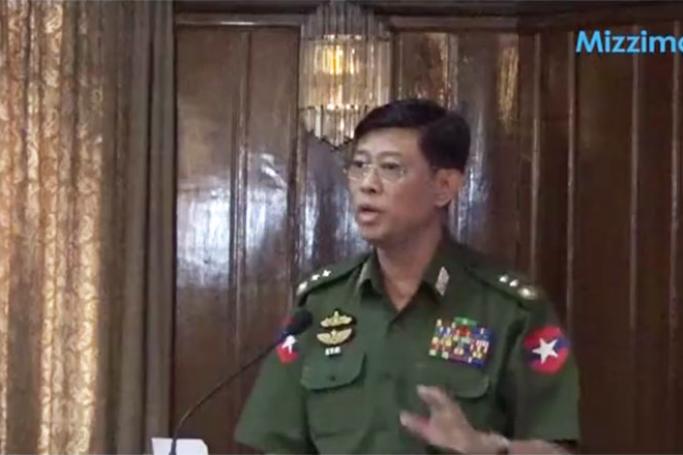Myanmar's military said Wednesday it was investigating the death of five villagers during an interrogation by soldiers and would punish wrongdoers, a rare admission from an army long accused of rights abuses.
The military, which ruled over the impoverished country for nearly half a century until 2011, seldom admits to misconduct despite a stewardship marked by brutal repression.
Rights groups say it has a particularly poor record of abuse in frontier states, where troops are locked in long-running wars with ethnic rebels fighting for greater autonomy.
Both sides have been accused of everything from using child labour to running a booming drug trade in the remote border regions.
But on Wednesday the military's chief of security admitted that five villagers in war-torn northeastern Shan state were killed while they were questioned by soldiers last month.
Their bodies were discovered buried in shallow graves several days after they were taken into custody, prompting locals in Mong Yaw village to accuse the officers of murder.
"A military tribunal studied the facts and found that it was not in accord with regulations," Mya Tun Oo said of the interrogation, adding that it followed a scuffle with rebel fighters in the mountainous region.
"Homicide happened as (the soldiers) didn't follow regulations. I would like you to know that we are going to take effective action against those who were responsible," he said.
The admission comes during a time of rapid change for the military's role in Myanmar, which is now led by its first civilian administration in decades.
The army, which handed power to a quasi-civilian government in 2011, has been increasingly keen to improve its reputation as Myanmar enters a new democratic chapter and launches onto the world stage.
"We have our regulations and laws when we question villagers or insurgents. We have to follow these laws," the security chief stressed Wednesday.
The military has freed child soldiers and taken part in ceasefire negotiations with ethnic minority armed groups -- though heavy fighting continues in some areas.
And while it allowed historic November polls that brought democracy activist Aung San Suu Kyi to power, the army retains control of key levers of government and large swathes of the economy.
A junta-written charter gifts soldiers a quarter of parliamentary seats and control of powerful government ministries.
So far Suu Kyi has taken a conciliatory approach to the generals who kept her under house arrest for years.
Analysts say the veteran activist must walk a careful line as she focuses on securing a peace deal with ethnic rebel armies still battling state troops.
Last year, the deaths of two ethnic Kachin teachers year triggered a wave of public outrage as activists accused soldiers of raping and murdering the pair in the village where they worked in Shan state.
More than one year later no one has been charged with the killings.
AFP
You are viewing the old site.
Please update your bookmark to https://eng.mizzima.com.
Mizzima Weekly Magazine Issue...
14 December 2023
New UK Burma sanctions welcome...
13 December 2023
Spring Revolution Daily News f...
13 December 2023
Spring Revolution Daily News f...
12 December 2023
Spring Revolution Daily News f...
11 December 2023
Spring Revolution Daily News f...
08 December 2023
Spring Revolution Daily News f...
07 December 2023
Diaspora journalists increasin...
07 December 2023
State Counsellor urges people not to exploit the pandemic and election for military gain












